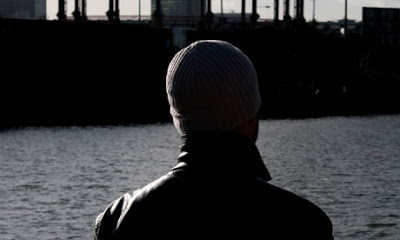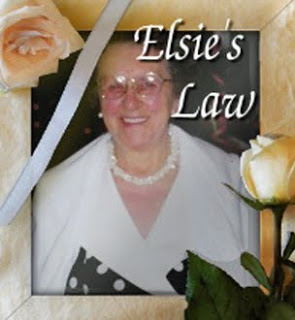 Photograph by Christian Sinibaldi for Guardian
Photograph by Christian Sinibaldi for GuardianYet another male police officer has been raped. Ms Amelia Hill wrote an excellent article in Guardian about the case of a raped police officer who dealt with sexual crimes for many years before he became a victim. He does not think he was drugged (I think it is possible and needs to be investigated because hair samples when analyzed can show up drugs used to facilitate sexual assault/rape) and cannot remember all the details of what happened to him which does occur in some cases of Post-traumatic Stress Disorder as the result of rape. Please, click on the photograph to read the story in the Guardian.
Despite the fact that he thinks he had good counseling, it appears to me he should have seen a psychiatrist as well because he has features of Post-traumatic Stress Disorder (PTSD) and requires further treatment. One of the symptoms of PTSD is avoidance of the reminders of the trauma. He now thinks that police officers go too far in persuading victims of rape to press charges. Unlikely, I would say. Victims of trauma avoid reminders, thoughts, situations and people that remind them of traumatic event because of the emotional pain. Even doctors and lawyers as well as court and police trying to help act as reminders and sometimes victims miss appointments or avoid it altogether. In other words, professionals have significant communication barriers to overcome when dealing with victims of trauma. Some victims are physically sick (vomiting) and have sleepless nights before their appointments with doctors as the memories flood back. Severe cases have hallucinations and paranoia. Usually, patients told me this starting with an apology: "It is not your fault doctor, but I vomited last night thinking of meeting with you. It is just thinking about it that makes me sick".
Several years ago, I was Expert Witness in a case of a Fire Brigade Officer who was raped at work in London. When the Psychiatrist, Expert Witness acting for the Fire Service said there is no difference in mental state between the person who imagined the rape and the one who suffered it, the patient vomited in court and was taken out by her husband to recover a bit before coming back into the court for the rest of the hearing.
What happened to this raped police officer, Guardian wrote about is so traumatic that he has lost confidence in his work and who knows if he would be able to continue working as a police officer. There are victims who retire on medical grounds. It is early days for him to even realize how he has been affected.
It can take many years for some victims of rape to make allegations and press charges.
When children are raped it can take a life time in some cases before they speak about it to anyone. Without social and family support it can become an impossible task to recover.
In 1999, I raised the issue of the wearing of religious uniforms by a social worker who was a nun when working with mentally ill some of whom could have suffered abuse at the hands of clergy as I knew how off putting reminders (religious uniform) would be for the men. There are now over one million men raped by clergy alone world wide.
All medical institutions in UK that I approached for support at least ten years ago have refused to consider the issue of wearing of religious uniforms when working with mentally ill up to present day and quite simply allowed my victimization and persecution as the result. Rather than concentrating on the real issue The Royal College of Psychiatrists and The General Medical Council did not. Self justification of religious bias took priority.
If the police officer whose work was to deal with sexual assaults/crime for many years cannot summon up the strength to press the charges against his rapist what would happen to mentally ill people who often have more than one psychiatric diagnosis e.g. PTSD plus depression plus substance/alcohol misuse? How likely are they to speak up of what happened to them if raped by clergy and facing a professional dressed in religious uniform/habit?
Religious privileges must be eliminated in health care in UK and patients put first. In cases of rape there are already symptoms of PTSD such as avoidance by the victim. The cases doctors deal with are very difficult to start with and one does not need more obstacles and barriers in communications. Patients find it hard anyway to talk about traumas. The case of the raped police officer who even specialized in sexual crimes illustrates this only too well when he avoids dealing with the crime through the courts.
Please click HERE to read more about religious uniforms in mental health.
People traumatized in car accidents also have avoidance symptoms and it does not surprise me that many people never make any claims for psychiatric and physical injuries suffered from e.g. insurance companies simply in order to avoid the painful reminders of the trauma. They often do not get any treatment and there are serious consequences: social, occupational and health wise. Sometimes there are quarrels and divorce because of car accident and PTSD even if there are no serious physical injuries. Children suffer a lot when there is arguing in the family and separations. The consequences of not dealing with PTSD go well beyond the victim.
So why do medical institutions avoid having clear and protective policies in the interests of the patients? Possible reasons are fear of offending the religious, and of course not caring for the mentally ill patients. Other major interest is personal power and ego of ADMINISTRATORS.
Stigma of mental illness means that regulators look down on mentally ill as well as those who are associated with them i.e. psychiatrists. Many jokes exist in which psychiatrists are mad people.
In politics, it is important to some to humiliate some psychiatrists more than others so that what they say can be disregarded. I certainly know about that. The stereotype of mad psychiatrist is still common even amongst doctors. Even psychiatrists do use this "card" to manipulate others (e.g. medical regulator) to get rid of critical colleagues (whistleblowers). All psychiatrists know of the stigma of mental illness. Oh, yes, they do.
Here watch a Professor in Politics speak on use of psychiatry to eliminate political dissent.
Every time a victim of rape who like this police officer decides not to press charges public is at risk as the rapist is free to commit crimes again. Therefore, police must make a decision to investigate/prosecute in some cases where the victim is too traumatized to make a rational decision. With time and healing he would get better.
Anger that results from trauma can lead to what appears as anti-social behavior sometimes. It is as if the person was thinking: There was no one to help me so why should I help anyone/prevent further cases of rape? A skilled psychiatrist can help victim turn anger into constructive outlet of energy such as helping police and the court. Learned helplessness is destroyed in the process and closure can take place. Avoidance is not closure.
In cases of rape by clergy it is embarrassing for institutions who have religious bias to deal with it as if they had to defend themselves. Something like guilt by association. Scandals within religious institutions become scandals within medical institutions when medical institutions refuse to act responsibly and instead chose the path of punishing and silencing those doctors who notice the religious privileges and speak up against it. Allowing religious uniforms or any uniforms in mental health is just so wrong.
CLICK HERE to sign the petition to Ban Religious Uniforms in Mental Health.






0 comments:
Post a Comment